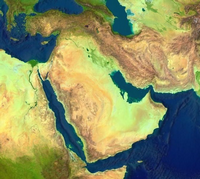After seven long years, the Indian government has decided that the time has come to once again make its presence felt in Iraq by naming an envoy to the country. The previous ambassador to Iraq was withdrawn in 2004 as the security situation in the country spiraled out of control. Even after the situation in Iraq had stabilized, with largely peaceful elections last year and the U.S. decision to withdraw its forces completely by the end of this year, New Delhi took its time to come to terms with the rapidly changing realities on the ground. After all, when it comes to the Middle East, inaction is the Indian foreign policy establishment's preferred mode of action.
India and Iraq had previously enjoyed longstanding political and cultural ties, with Iraq having emerged as one of India's closes allies in the Middle East by the 1970s. Not surprisingly, New Delhi not only opposed the use of force against Iraq in 1991 but also vehemently denounced the imposition of U.N. sanctions on Saddam Hussein's regime. Saddam reciprocated by strongly backing India on the issue of Kashmir and on the 1998 nuclear tests. But Iraq's global isolation meant that India's economic ties with the country suffered significantly, even though India tried to use the Oil-for-Food program to expand bilateral trade.
By the time of the Second Gulf War, India's foreign policy priorities had changed dramatically. Though it publicly opposed the 2003 U.S.-led invasion of Iraq, New Delhi came very close to sending troops to post-war Iraq in support of the United Nations Security Council's resolution to help maintain security in the country. Though a lack of domestic consensus prevented that from happening, India has contributed $10 million toward the International Reconstruction Fund Facility for Iraq (IRFFI) dedicated to reconstruction and development in Iraq, in addition to committing $20 million for assistance to the Iraqi people under the United Nations framework. India has also been training Iraqi government officials under the Indian Technical and Economic Cooperation Program, while the Indian Oil Corporation Limited (IOC), the largest India importer of crude oil from Iraq, has been training Iraqi oil sector officials. Iraq is the third-largest supplier of crude to India after Saudi Arabia and Iran.

